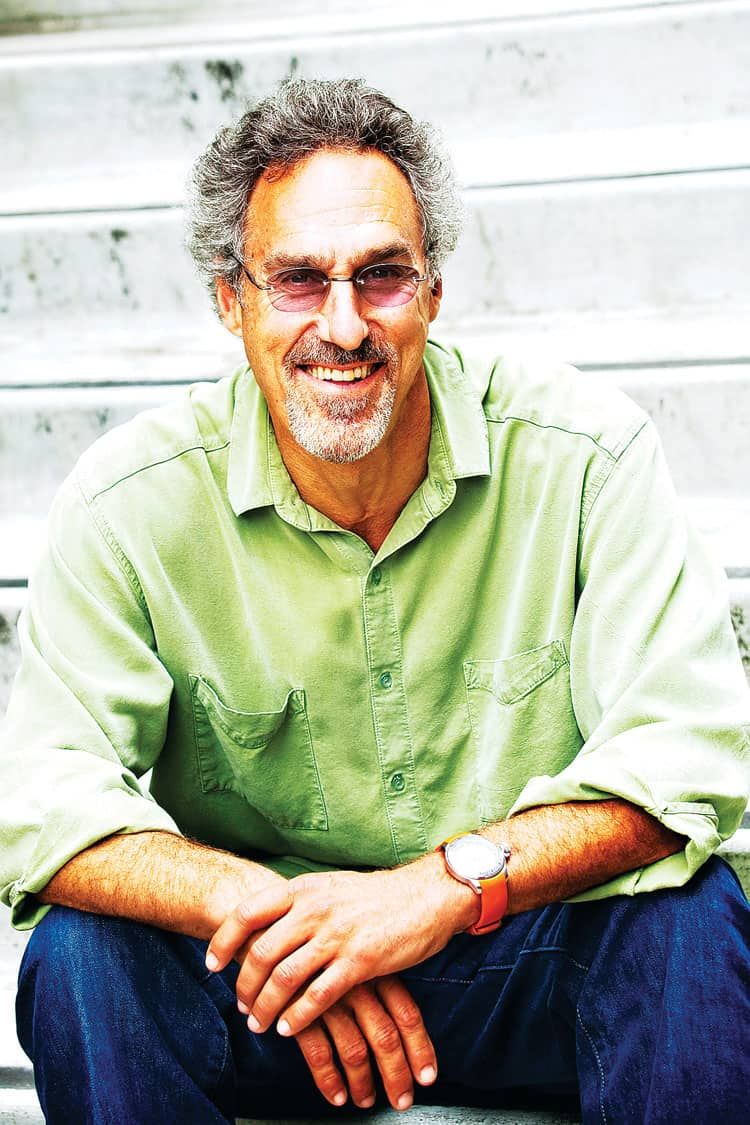Slow Money mix of philanthropy, investing

BOULDER – Slow Money may be the largest national nonprofit investment group you’ve never heard of, and it’s based in Boulder.
But maybe you have heard of Esoteric Foods Co. in Broomfield, which plans to grow its Zuke pickled products on grocer shelves in coming months following an interest from Localization Partners LLC, a Boulder-based, for-profit investment group.
Localization Partners is a member of the local Slow Money Investment Club and is owned by Transition Colorado, a nonprofit group that raises public awareness about environmental issues.
Or maybe you have heard of Source Local Foods, a food distributor in Broomfield that works closely with local farmers to get fresh vegetables to local markets. Source received funding from Localization Partners.
Nationally, the Slow Money group has invested more than $22 million in 185 food enterprises in recent years, according to Woody Tasch, the group’s founder. The group has an annual budget of close to $1 million, according to tax forms filed with the Internal Revenue Service – money generated by 150 founding members and by ongoing contributions.
SPONSORED CONTENT
Answers to your commercial solar frequently asked questions
Navigating the complexities of a solar capital energy improvement can be challenging, so we’ve answered some of the most common questions.
Slow Money’s investments in food entrepreneurs and marketing work is based on the book “Inquiries into the Nature of Slow Money: Investing as if Food, Farms and Fertility Mattered,” written by Tasch and published in 2010.
As the book gained notoriety in foodie circles, Tasch decided to start the Slow Money nonprofit in Massachusetts. He moved the group to the foothills above Boulder in January 2012. Some 150 founding members invested between $1,000 and $50,000 each in Slow Money, including Greg Steltenpohl, founder of Odwalla Inc., a juice company in Denver, and George Siemon, chief executive of Organic Valley, the largest cooperative of organic food farmers in the United States based in LaFarge, Wisconsin.
The group’s goal is to give money to fledgling food enterprises across the country to help them thrive. Slow Money has grown to 17 chapters across the United States and six investment clubs.
Tasch calls the group’s mission a cross between philanthropy and investing in local food industry companies.
“I didn’t have any forward knowledge about how this might become a national organization, but the book kind of sparked it,” Tasch said.
Most of the investments have been low-interest loans, Tasch said In most cases, investors have not required collateral to make the loans.
The investment concept has “gotten some buzz” from media such as Entrepreneur.com, which called Slow Money “one of the top five trends in finance in 2011,” Tasch said.
“We have gotten noticed by a whole lot of people,” Tasch said. “Now our job is to live up to that hype.”
One new initiative is the group’s Soil Trust, a unique mix of crowdfunding and philanthropy.
Crowdfunding is the word coined to describe startup companies and individuals going online to raise money through national websites such as www.kickstarter.com, www.indiegogo.com as well as others. The fundraising mechanism gained traction following the new Jumpstart Our Business Startups, or JOBS Act, approved by Congress in 2011. The Soil Trust has raised $60,000 so far through an online marketing campaign.
Tasch’s belief in the importance of local investors putting money into local enterprises comes from his time as the former chief executive of Investors’ Circle, a national angel investment network based in Durham, North Carolina, and in San Francisco. The network focuses on generating social returns on investment, putting $165 million so far into more than 230 companies, according to data on its network. An angel investor is an individual who invests money into promising enterprises, usually with an expected rate of return. With social investing, the rate of return isn’t necessarily fixed, Tasch said.
In such a model, small investors who put money into the Soil Trust, might see their investment more as a donation, for example, Tasch said.
Regardless of the nature of return, Slow Money should not be seen as “a fringe bunch of foodies,” Tasch said.
“It’s a whole different spin on investing,” Tasch said.
The group this year plans to bring more than 600 people to Boulder on April 29-30 for its annual gathering. Costs to attend the two-day event range from $445 for a “concerned citizen” who belongs to a nonprofit group or startup company to $945 for a “professional” who works as an investment adviser or manager. A number of half-price scholarship memberships are available for students and others on request.
In Boulder, an anonymous donor gave Localization Partners LLC a $1.5 million, 10-year, interest-free loan in fall 2011 to invest in local companies, said Michael Brownlee, who heads the local project. In all, Slow Money has 17 chapters around the United States and six investment clubs.
Getting a group of 15 to 20 people together to make decisions about investments has been a “very interesting experiment,” Brownlee said. He is working with Tasch to get other investment clubs organized around the state.
Members of the Slow Money Investment Club group each put in $5,000, with a total of about $45,000 invested so far. The group meets once per month to hear a presentation from a local producer or a food entrepreneur, Brownlee said.
“You could say it’s the democratization of capital, but it’s been a lot of fun,” Brownlee said.
The group has worked on the “10 percent local” food pledge to get more locally grown food to local markets.
The group also has had a close relationship with Lucky’s Market grocery store in Boulder — one of the stores where local entrepreneurs and farmers can sell their products, Brownlee said.
“We find ourselves … more and more approached from farmers for instance who are looking expand operations or new food entrepreneurs who are trying to get started, or someone trying to grow to scale,” Brownlee said.
For example, a rancher in Idaho who sells his grass-fed beef on the Front Range is looking to expand, and the group is considering investing in the ranch, Brownlee said.
In all, the group hopes to generate new jobs in Colorado with its local investments, based on economic studies that show more local jobs are created from local investments.
“We don’t come from a financial management background, so the learning curve has been rather steep,” Brownlee said. “But it has been exciting and gratifying to see the whole Slow Money idea being implemented here.”
The local return on investment is “often slow,” but the social return is expected to be very high, which may, in turn, drive more investment and interest, Brownlee said.
“We think as more people learn about Slow Money, we will see a flood of capital moving into the group,” Brownlee said.
BOULDER – Slow Money may be the largest national nonprofit investment group you’ve never heard of, and it’s based in Boulder.
But maybe you have heard of Esoteric Foods Co. in Broomfield, which plans to grow its Zuke pickled products on grocer shelves in coming months following an interest from Localization Partners LLC, a Boulder-based, for-profit investment group.
Localization Partners is a member of the local Slow Money Investment Club and is owned by Transition Colorado, a nonprofit group that raises public awareness about environmental issues.
Or maybe you have heard of Source Local Foods, a food distributor in…
THIS ARTICLE IS FOR SUBSCRIBERS ONLY
Continue reading for less than $3 per week!
Get a month of award-winning local business news, trends and insights
Access award-winning content today!

